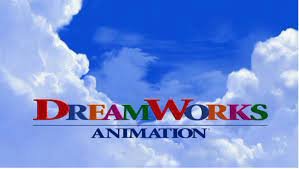I’m a nativist. When it comes to software applications, I mean. I prefer standalone “native” applications over some app that lives in the sky and is beamed down to my screen inside a foreign-feeling wrapper. In short: Apple Pages over Google Docs. Xmind over Coggle. Things over Todoist. Native apps provide a consistent look and feel, local data storage, more privacy, are more customizable, and are almost always prettier.
But like any sophisticated system of hardware and software, I’m capable of change. And lately, I’ve started to appreciate the strengths of Software as a Service (SaaS). When well-executed, some of these applications allow for a very consistent interface across platforms, the ability to be updated and fixed frequently, and — most important for me — diamond-solid data preservation. I don’t have to worry about losing anything when transporting data from my iPad to my iMac because I’m not transporting any data. I’m working directly on the same file in the cloud, just from different devices.
In terms of screenwriting, these are some of the Web-based apps I’ve grown to like:
• Dynalist — outlining
• Arc Studio — script writing — Google Docs for screenwriters, but in a good way.
• Zoho Writer — word processing, document creation
Dynalist, by the makers of the now-more-famous Obsidian, is a lean but deceptively powerful outlining platform. I say “platform” because you can link any document to any other; in fact, any paragraph to any other, across your entire database, creating a real second brain. And you can organize that database in folders. You can link to external data, too, like documents and images. Because it lives in clouds, collaboration is easy and almost bulletproof. It’s not pretty, and it’s not cheap. But it just works. The free version includes unlimited documents and most features; you get everything for $10 per month, or $96 if you pay for a year in advance. Educational discount available.
Dynalist
Arc Studio can best be described as Google Docs for screenwriting and production. That may sound like a left-handed compliment, but I’m talking about what Google Docs does right: rock-solid data retention across platforms. From Mac to Windows to iOS to Android, you won’t lose so much as a comma from your script, outline, beat sheet, or notes. A relative newcomer, Arc Studio is a work in progress, but lately its progress has been impressive. All the features a professional screenwriter might expect are there, including tracking changes and revision management. It takes a little while to learn the unorthodox UI, but frankly, I’ve found that true of almost every purpose-built script processing program. I’m using Arc right now to draft a feature, and I plan to report back in full. I think it will be worth my time, and yours. Free for two scripts (think of it as a trial); the full feature set costs $70 per year.
Arc Studio
Zoho Writer is what Google Docs should be by now. It lives in the cloud, but dresses for the desktop. ZW looks at document creation as a pipeline. Decide whether you’re composing, reviewing or distributing your document, and the right tools appear. But not in the kludgy style of the ribbon in Microsoft Word; no: elegant, spare, graceful. Once you learn its interface, you’ll wonder why native word processing apps don’t steal a few of its tricks. The iPad and iOS apps, among others, could use some work. But since Zoho has been around for years and serves millions of user with dozens of apps, I’m confident Zoho Writer isn’t going anywhere, and will be constantly improved. Free for a totally fine feature set; $2 per month if you want to collaborate, share, and do other things; $5 per month if you’re a team worker and have large storage needs.
Zoho Writer








